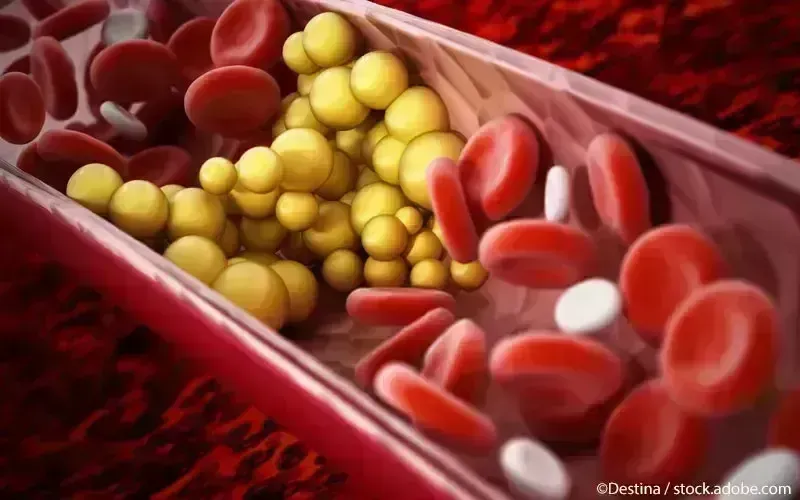- Home
- Medical news & Guidelines
- Anesthesiology
- Cardiology and CTVS
- Critical Care
- Dentistry
- Dermatology
- Diabetes and Endocrinology
- ENT
- Gastroenterology
- Medicine
- Nephrology
- Neurology
- Obstretics-Gynaecology
- Oncology
- Ophthalmology
- Orthopaedics
- Pediatrics-Neonatology
- Psychiatry
- Pulmonology
- Radiology
- Surgery
- Urology
- Laboratory Medicine
- Diet
- Nursing
- Paramedical
- Physiotherapy
- Health news
- Fact Check
- Bone Health Fact Check
- Brain Health Fact Check
- Cancer Related Fact Check
- Child Care Fact Check
- Dental and oral health fact check
- Diabetes and metabolic health fact check
- Diet and Nutrition Fact Check
- Eye and ENT Care Fact Check
- Fitness fact check
- Gut health fact check
- Heart health fact check
- Kidney health fact check
- Medical education fact check
- Men's health fact check
- Respiratory fact check
- Skin and hair care fact check
- Vaccine and Immunization fact check
- Women's health fact check
- AYUSH
- State News
- Andaman and Nicobar Islands
- Andhra Pradesh
- Arunachal Pradesh
- Assam
- Bihar
- Chandigarh
- Chattisgarh
- Dadra and Nagar Haveli
- Daman and Diu
- Delhi
- Goa
- Gujarat
- Haryana
- Himachal Pradesh
- Jammu & Kashmir
- Jharkhand
- Karnataka
- Kerala
- Ladakh
- Lakshadweep
- Madhya Pradesh
- Maharashtra
- Manipur
- Meghalaya
- Mizoram
- Nagaland
- Odisha
- Puducherry
- Punjab
- Rajasthan
- Sikkim
- Tamil Nadu
- Telangana
- Tripura
- Uttar Pradesh
- Uttrakhand
- West Bengal
- Medical Education
- Industry
Alirocumab addition to statins significantly regresses plaque in non infarct-related coronary arteries

Statins have been shown to reduce cardiovascular adverse events in patients with atherosclerotic disease. In a recent study, researchers have reported that the addition of the PCSK9 inhibitor alirocumab to high-intensity statin therapy in patients presenting with AMI resulted in favourable effects on coronary atherosclerosis. The study findings were published in the JAMA on April 03, 2021.
Statins can halt the progression of coronary atherosclerosis. However, the effect of the proprotein convertase subtilisin Kexin type 9 inhibitor alirocumab added to statin therapy on plaque burden and composition remains largely unknown. Therefore, Dr Lorenz Räber and his team conducted a study to determine the effects of alirocumab on coronary atherosclerosis using serial multimodality intracoronary imaging in patients with acute myocardial infarction.
The PACMAN-AMI (Effects of the PCSK9 Antibody Alirocumab on Coronary Atherosclerosis in Patients With Acute Myocardial Infarction) was a double-blind, placebo-controlled, randomized trial in which the researchers included 300 patients undergoing percutaneous coronary intervention for acute myocardial infarction. All patients received a high daily dose of the statin drug rosuvastatin (20 mg) and were randomized to receive biweekly subcutaneous alirocumab (150 mg; n = 148) or placebo (n = 152) for 2 weeks. The first injection was administered less than 24 hours after the insertion of a stent while patients were still in the hospital for their heart attacks.
Post stenting procedure, patients underwent three types of imaging in two other arteries of the heart. They were:
- Intravascular ultrasonography (IVUS),
- Near-infrared spectroscopy, and
- Optical coherence tomography.
At 52 weeks, the three imaging tests were repeated and the researchers analyzed the differences between before and after-treatment images. The major outcome assessed was the change in IVUS-derived per cent atheroma volume from baseline to week 52. Two powered secondary endpoints assessed were changes in near-infrared spectroscopy–derived maximum lipid core burden index within 4 mm (higher values indicating greater lipid content) and optical coherence tomography–derived minimal fibrous cap thickness (smaller values indicating thin-capped, vulnerable plaques) from baseline to week 52.
Key findings of the study:
- At 52 weeks, the researchers found that the mean change in per cent atheroma volume was −2.13% with alirocumab vs −0.92% with placebo (difference, −1.21%).
- They noted that the mean change in maximum lipid core burden index within 4 mm was −79.42 with alirocumab vs −37.60 with placebo (difference, −41.24).
- They observed that the mean change in minimal fibrous cap thickness was 62.67 μm with alirocumab vs 33.19 μm with placebo (difference, 29.65 μm).
- They reported that the adverse events occurred in 70.7% of patients treated with alirocumab vs 72.8% of patients receiving a placebo.
The authors concluded, "Among patients with acute myocardial infarction, the addition of subcutaneous biweekly alirocumab, compared with placebo, to high-intensity statin therapy resulted in significantly greater coronary plaque regression in non–infarct-related arteries after 52 weeks. Further research is needed to understand whether alirocumab improves clinical outcomes in this population."
For further information:
Medical Dialogues Bureau consists of a team of passionate medical/scientific writers, led by doctors and healthcare researchers. Our team efforts to bring you updated and timely news about the important happenings of the medical and healthcare sector. Our editorial team can be reached at editorial@medicaldialogues.in.
Dr Kamal Kant Kohli-MBBS, DTCD- a chest specialist with more than 30 years of practice and a flair for writing clinical articles, Dr Kamal Kant Kohli joined Medical Dialogues as a Chief Editor of Medical News. Besides writing articles, as an editor, he proofreads and verifies all the medical content published on Medical Dialogues including those coming from journals, studies,medical conferences,guidelines etc. Email: drkohli@medicaldialogues.in. Contact no. 011-43720751


